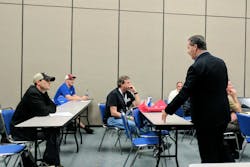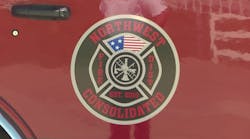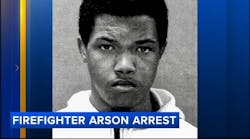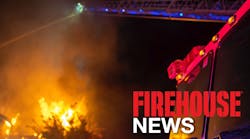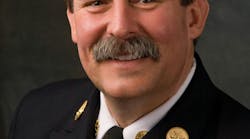The number of firefighters whose career ends in a line-of-duty death on the fireground is, fortunately, relatively small. The number of firefighters whose careers end because of a bad decision is much greater.
In his Thursday Firehouse World session “Avoiding the Career-Ending Move: Positive Decision-Making from Probation to Retirement,” Dean O’Nale—fire and EMS chief with Oldsmar, FL, Fire Rescue—addressed the role of ethics in decision-making and how it can impact community support, and offered case studies of bad decisions that resulted in career suicide.
After discussing a rather well-known incident in which firefighters had escorts posing for photos at a station, O’Nale asked, “How much time did we spend in the academy talking about escorts in the station?” The answer: zero. Clearly part of the problem is that the fire service focuses a lot of energy on fireground decision-making but very little on non-incident decision-making, which could include in-station situations or even off-duty situations. “We’re not teaching our young firefighters to make good, ethical decisions,” he said.
O’Nale offered several reasons why ethics are important: They promote public trust and confidence; they help identify organizational values; they cultivate employee commitment to the organization; they can shield organizations against abuse of power, misuse of information and inside dealings; ethical organizations better attract quality personnel; and ethical behavior can inhibit unlawful actions.
As this connects more specifically to the fire service, O’Nale explained that company officers need to demonstrate a commitment to ethics and foster open communication because employees’ perception of their department’s ethics affect overall engagement. Further, when employees see misconduct in the workplace, they tend to be less engaged. Engaged employees are less likely to feel pressure to commit misconduct, and are more likely to report misconduct, which reduces the organization’s ethics risk.
O’Nale referenced a book by John Maxell called “Ethics 101,” which says there’s only one rule for making decisions—the golden rule. He acknowledged that it may sound hokey, but there are advantages to the golden rule: It’s accepted by most people; it’s easy to understand; it’s a win-win; and it’s a compass for when you need direction. But perhaps most importantly, when it comes to ethics, it’s vital that people have a standard to follow and the will to follow it.
Further, it’s important that firefighters understand the difference between mistakes and bad decisions. Bad decisions are made intentionally, often without regard for consequences. “From the start of our careers and through all the ranks, we need to teach and understand the meaning of consequences,” O’Nale said. He explained that people sometimes reclassify bad decisions as mistakes because it “softens the blow” and makes it easier to live with.
Some of the most common bad ethical behaviors or areas of concern in the workplace:
- Cutting corners
- Lying to hide mistakes
- Badmouthing colleagues
- Slacking off when no one’s watching
- Accepting gifts or gratuities (not counting articles of negligible value or social courtesies)
- Decisions based on favor or preferential treatment
- Misuse of position
- Using position to secure special privileges
- Using confidential information gained through official duties for personal gain
- Using employer-owned equipment
- Soliciting employment or service opportunities for personal gain
It’s easy to see how these examples can happen in the fire service. But why do people make these bad decisions in the first place. O’Nale said people will do what is most convenient in the moment and what they need to “win.”
One of the best things to teach a new firefighter, O’Nale said, is five word: “Yes, chief, I did it.” He encouraged officers to develop a culture in which firefighters know that they can admit their mistakes and bad decisions and seek support from superiors to mitigate the situation. It’s not an easy cultural shift, of course, but one that can help foster an environment in which firefighters don’t feel the need to try to lie or “cover up” their errors, which can often be worse than the original offense.
O’Nale recommended that firefighters review their state statues related to ethics codes, as well as department rules and regulations, and union contracts so expectations are clear up front—and they understand consequences.
“We have the best job in the world, and we kill ourselves by making bad decisions,” O’Nale said. It’s time to teach firefighters about bad decisions—early in the game—so they understand the consequence and will hopefully be more likely to make good decisions in the moment.
